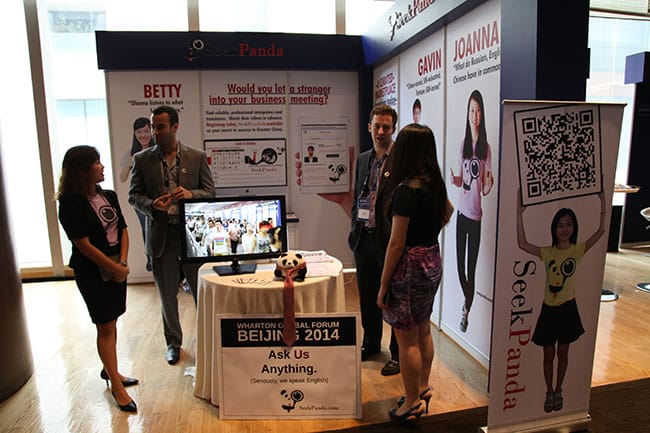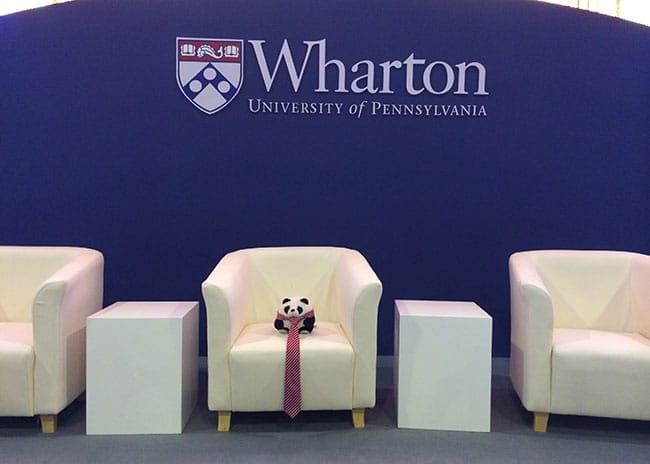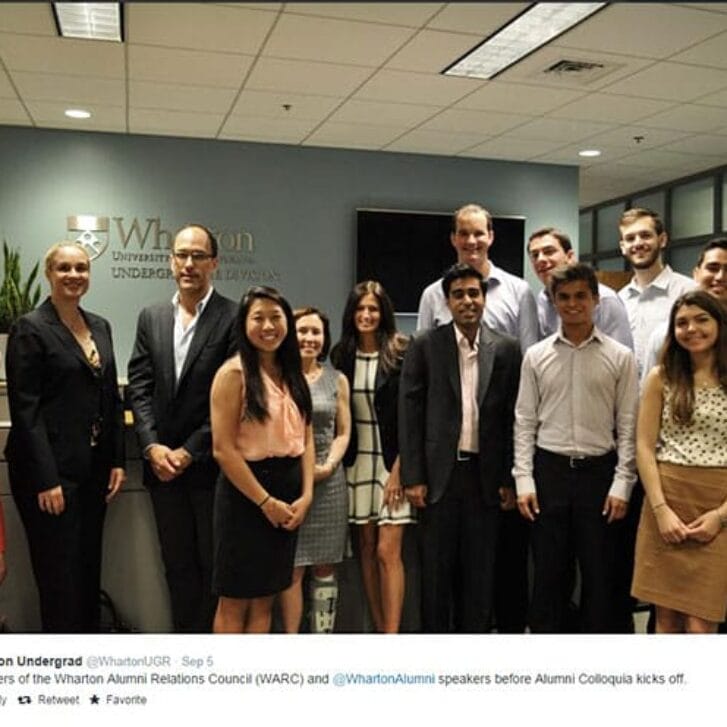Attendees of the past Wharton Global Forum in Beijing left raving about the world-class educational and networking experience. They spoke about their brush with the then-incoming dean, Geoffrey Garrett. They praised the event’s classy and smooth operation, even its cuisine. They were excited about the impending official launch of the Penn Wharton China Center. And more than a few attendees mentioned the able work of an alumni-founded startup that held its own launch event in conjunction with the forum.
Matt Conger, W’06, and co-founder Phil Kohn had their entrepreneurial “aha” moment after traveling to China for business as young professionals without knowing how to speak Chinese. (Conger formerly worked in a private-equity firm in the energy space and at Bain & Company.)“We experienced what our customers are about to experience,” Conger said during a Skype call, referring to the foreboding sense of being somewhere new and strange without contacts or language skills to navigate with.
Both men, former high school classmates, put work on pause to study Mandarin Chinese, and as they came to better appreciate the needs of Western business travelers, they also met many Chinese people who would benefit from being connected with visitors. At the start of 2014, Conger and Kohn turned down scholarships to study Chinese and instead contemplated business plans for ways to simplify business travel. In March, they narrowed their efforts to a translation and interpretation service startup. By May, they were in touch with the Wharton Global Forum organizers.
Their startup, SeekPanda, is a combination of digitized data and old-fashioned face-to-face translation. Interpreter resumes are indexed online and searchable by clients and prospects down to industries and keywords (in what they call a “curated marketplace”). Interpreters have access to an internal wiki where they can share industry knowledge. The focus is on providing high-quality matches.
“This isn’t Uber where you’re looking for any driver to get from point A to point B,” Conger said, referring to the sharing-economy driving service.
View photo highlights of the Wharton Global Forum in Beijing.
It takes time to vet translators (called “pandas” in the startup’s jargon). Candidates who look great on paper can fail the face-to-face test. Translators need to be people clients can trust with confidential and sensitive information. (The company tagline is: “Would you let a stranger into your business meeting?”)
Founders Conger and Kohn placed 10 pandas on call for the Wharton Global Forum, seven of which were assigned to Wharton staff or to help with translating the event programming—all for free. Held in conjunction with the forum, the SeekPanda official launch party included renting a bus and inviting anyone affiliated with the forum for a tour of the Great Wall. A local brewery, Panda Brewery, donated beverages.

Founders Matt Conger, W’06 (right) and Phil Kohn man their booth at the forum.
SeekPanda has as many as 40 interpreters and translators on call operating in four regions, and the founders plan to remain at this level for the time being, at least until their utilization rate peaks while customer service remains positive across the board. For pandas, SeekPanda presents an opportunity to escape traditional translation agencies in China, which take 50 to 70 percent of their rate, says Conger, and control scheduling. Alluding to another sharing economy brand name, Conger suggested that SeekPanda is like Airbnb in that it connects interpreters with clients, then steps out of the way, allowing interpreters to name their own price and availability. (Pandas then receive 80 percent of the charged fee.)
The startup name resonates with local interpreters too. The panda is a symbol of sharing the wealth of Chinese culture with the world. The founders tested it with Chinese interpreters to be sure.
“Unanimously, they loved it,” Conger said. “They really embraced it.”


























